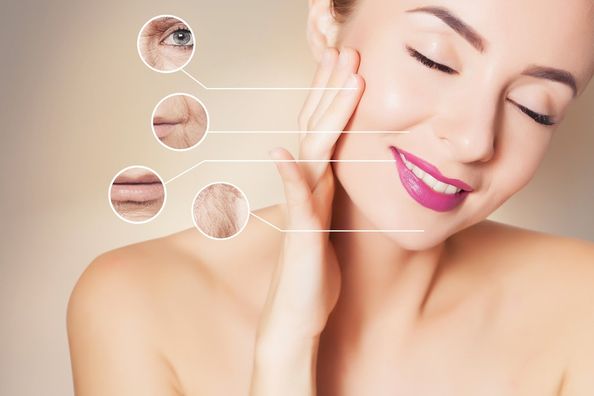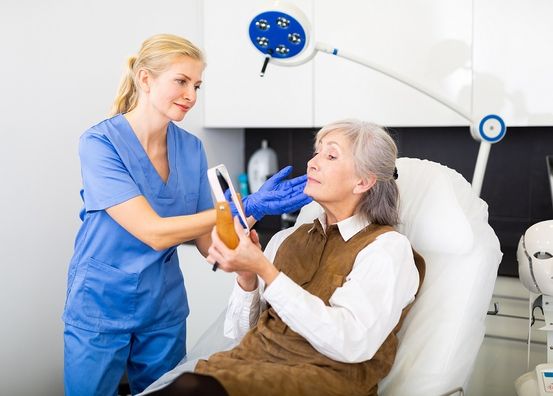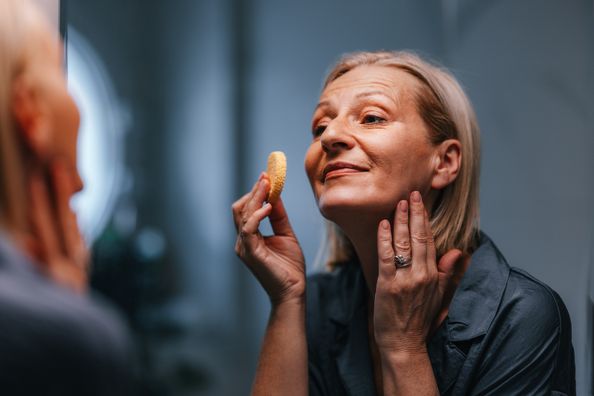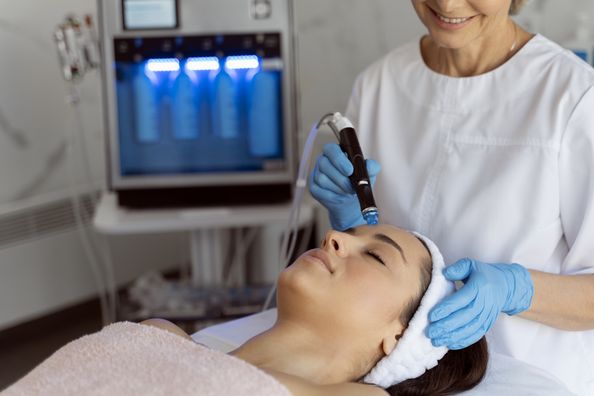Peptides are the new buzzword in skin care, and the newest anti-aging ingredient to receive a lot of attention. But what are peptides and how to they work?
Literally, peptides are defined as two or more amino acids linked by a peptide bond. Two or more amino acids combine and form a protein. They are naturally occurring in the skin, being a major building block of keratin. Peptides also occur as collagen proteins break down, and research shows that these proteins send messages to the skin that collagen has been damaged and needs to be replenished. When we apply these peptides topically or synthetically, they send the same message to our dermis, basically, “tricking” the skin to believe too much collagen has been broken down which stimulate the fibroblast to produce more collagen. The use of peptides can be remarkable, especially since they don’t cause any irritation to the skin like other anti-aging ingredients such as retinol.
Different peptides can act as neurotransmitters or control hormone activity, while others stimulate the production of collagen and capillary repair and growth. Some of the most popular peptides are:
Acetyl Hexapeptide — The trademark name for Acetyl Hexapeptide is Argireline. It is also called a neuropeptide. This is the product that is marketed as “an alternative to Botox”, because it claims to relax certain types of facial wrinkles by inhibiting the release of neurotransmitters.
Palmitoyl Pentapeptide — Palmitoyl pentapeptide is also known as Matrixyl. It is the main ingredient in anti-aging products like Strivectin and was originally developed for use on stretch marks. It works by stimulating the deeper matrix layers of the skin to increase the production and synthesis of collagen and hyaluronic acid. (It “tells” the skin to make more collagen.) This action also helps the skin to heal wounds faster.
Palmitoyl Oligopeptide is similar to Palmitoyl Pentapeptide, as it also stimulates the synthesis of collagen and hyaluronic acid in the deep layers of the skin. It also provides mild UV protection that helps protect the skin from sun damage.
Copper Peptide is also called copper gluconate and it is all about the copper, not the peptide. The copper is attached to a peptide so the copper can be delivered to the deeper layers of cells in the skin. Copper helps to accelerate collagen production and also acts as an antioxidant.
At Duly Aesthetics, we recommend using a peptide serum in your daily routine. Our Only Yours RX Maximum Regenerating serum has a high concentration of Acetyl Hexapeptide and Palmitoyl Pentapeptide. We especially recommend it after any facial treatment like microdermabrasion, photo rejuvenation and chemical peels.
It is also an add-on treatment to our Hydrafacial as a multipeptide anti-aging serum. It includes three peptides, Acetyl Octapeptide 3, Palmitoyl dipeptide 5, and Diaminohydroxybutrate that reduces appearance of wrinkle and expression lines, enhances skin elasticity, and improves skin texture. After a thorough exfoliation, the skin easily absorbs the multipeptide serum, giving a long lasting anti-aging benefit to the skin. We recommend having a hydrafacial with the multipeptide serum whenever you want to look your best for a special occasion or as an anti-aging regimen every 6 weeks.
Health Topics:







